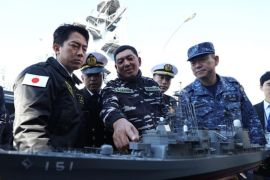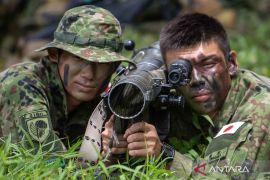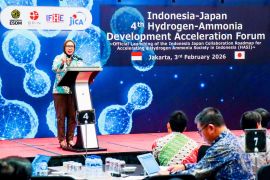At the same time there is growing anxiety about the reactors in a number of nuclear power stations, it added.
"About 380,000 people have been evacuated from the tsunami and earthquake affected areas and are being sheltered in 2,050 evacuation centres. According to the International Atomic Energy Agency (IAEA) authorities have also evacuated another 210,000 people living within a 20 km (12-mile) radius around the Fukushima nuclear power plants," the UN Office for the Coordination of Humanitarian Affairs (OCHA) said in an update on the rescue operation.
Rescue teams from all over the world --from the United States, Switzerland, Australia and Mexico among many nations--are being deployed to help the huge numbers of victims and find those missing.
But, OCHA said, the rescue operations were "hampered by continuous aftershocks, tsunami alerts and fires."
"Many areas along the northeast coast remain isolated and unreachable by emergency services. To date, 3000 people have been rescued."
Thousands of people are still reported missing after the tsunami unclenched by the quake, which according to the United States Geological Survey had a magnitude of 8.9, the strongest in Japan`s history and probably responsible for more than 10,000 deaths.
"A seven-member UNDAC (UN Disaster and Assessment) team has arrived in Tokyo," OCHA said. "The team will assist the government of Japan`s efforts and coordinate the international Urban Search and Rescue (USAR) teams, as well as assist with assessments and environmental hazard analysis."
"The main humanitarian needs are food, drinking water, blankets, fuel and medical items which the government and private sector in Japan are urgently mobilising and sending to the affected areas.
"The government says 2.6 million households are without electricity and nearly 3.2 million people are running out of gas supplies. This is critical as it is winter in Japan and the temperature is dropping to one degree Celsius overnight," OCHA said.
It added that "1.4 million people also have no access to water. Hospitals are reportedly coping with the number of patients. One hundred and forty five of the 170 designated emergency response hospitals in Japan are now fully functioning." (*)
Editor: Kunto Wibisono
Copyright © ANTARA 2011











